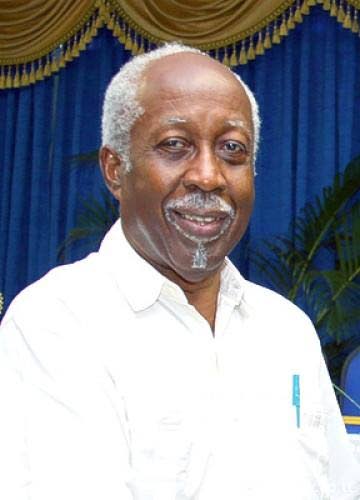Some reflections at sixty

REGINALD DUMAS
Pt III
IN MY last article I referred to the negative impact of what I called “the social (frequently anti-social) media.” An excellent example of that negativity surfaced a few days ago. Officiating and grieving at the funeral of his young daughter, who had been mauled to death by a dog, Pastor Kelvin Bhagwandeen said that one of the comments he’d received was this: “If you are a pastor, how didn’t God step in?”
This is the callous and insensitive level to which too many of us, convinced we’re clever and witty (and perhaps already carrying a burden of bitterness), have degenerated. Simultaneously, and with no sense of irony, we vent about how TT has declined – “a failed state,” we charge – as if our own behaviour doesn’t in any way contribute to that decline. Is this how to go about building the society we say we want?
Earlier, I mentioned our disappearing values. The Prime Minister has also deplored the descent in the quality of parenting. He’s right, but he must know that parenting is only one aspect – a vitally important aspect, to be sure, but only one aspect – of constructing and maintaining a good society.
What of education (of which parenting is a key element) in the broad sense of the term? It is central to socio-economic development. But how do we define “education?” To what end are we “educating?” To help students pass exams? (What kind of exams, incidentally?) To have people sneer at others on “social media?” To have depressed children if they haven’t passed for their “first choice” or for a “prestige school?” (What makes a school “prestigious,” by the way?) To win national scholarships so that certain schools can boast? Are these really the vital factors of national progress? But what of the foundations necessary to support a forward-looking society? Critical thinking? Collaborative effort? Personal integrity? Societal equity? Relevance to the world?
To what extent do we focus on pre-school education? James Heckman, who won the 2000 Nobel Prize for Economics, has done research which indicates that while “the costs of comprehensive early childhood education are high, the rate of return…implies that these costs are good investments. Every dollar spent on high-quality, birth-to-five programs for disadvantaged children delivers a 13 per cent per annum return on investment.” Agreed, Heckman’s research was on deprived African-Americans, but is the principle the same for all children, in America as elsewhere? I merely ask.
Should good education be available to all, and not only to those successful in academic exams? Eric Williams and Rudranath Capildeo seem to have thought so. Concordat notwithstanding, our independence Constitution speaks at section 1 of “the right of a parent or guardian to provide a school of his own choice for the education of his child or ward.” The same language appears at section 4 of the republican Constitution.
And this is what Williams wrote in his 1969 autobiography, Inward Hunger: “(O)ur new Education Plan for the period 1968-1983…involves cutting off primary school education at the age of 11, elimination of the Common Entrance examination for the 11-plus children and their automatic movement from primary school to a new junior secondary school…” Things haven’t worked out quite that way, but was his vision skewed?
Governments don’t always get things right; nobody does. Governments can’t get everything right, because for political reasons they promise too much. But we know that, so what’s the point in constantly pointing fingers of blame at them, and at others? If this is our society, our country, we too have responsibilities; we too must act.
It was with that sentiment in mind that in 2015 I and others formed Resett1962, emphatically not a political party. We said this in our foundation document: “The challenge of 1962 was to build for ourselves a strong and stable nation. The time has come for us to take up that challenge again. We must restart and reset the process of nation-building through participatory governance. And do it right this time, together.”
We described the essential pillars on which such governance rested as information, consultation, participation, accountability and control (“control” meaning the sovereignty of the people, not of governments).
For various reasons, Resett1962 has now faded away, but these issues have intensified, and public unhappiness has grown. Independence is much more than a flag and an anthem and marching bands. It is a state of mind – the ability and willingness to think for oneself, and to take the necessary action, always in the best interest of TT as a whole.
Yes, technically we haven’t done badly since 1962, but we still have a long, long way to go.

Comments
"Some reflections at sixty"